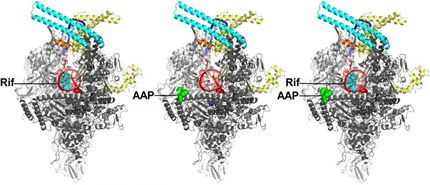New Data Further Strengthens Case for Microdosing in Drug Development
EUMAPP consortium present data on 7 compounds
Advertisement
Xceleron announced that preliminary results from the European Union Microdose AMS Partnership Programme (EUMAPP) further endorses the growing body of microdose data that predicts pharmacological dose ADME/PK outcomes.
The EUMAPP consortium presented preliminary results from the 30-month, EUR2m project at the EUFEPS Conference in Bad Homburg, Germany on 16 June. The compounds selected for EUMAPP were chosen to rigorously test the predictability of human microdosing by studying drugs that exhibited properties in humans that are difficult to predict in animal or in vitro models and drugs with properties that, it was suspected, might be difficult to predict at a therapeutic dose from microdose data.
On reviewing the preliminary EUMAPP data Dr. Colin Garner, President and CEO of Xceleron and Chair of the EUMAPP steering committee commented: "The outputs of the programme need to undergo rigorous scrutiny and detailed interpretation but the early indications are that results strongly endorse the ability of microdosing to provide valuable human data at the earliest stages of exploratory clinical development". He added: "We are proud to be associated with EUMAPP and congratulate the members of the consortium for a job well done".
In the final presentation summarising the EUMAPP workshop, Dr. Roeline Jochemsen, Director of Clinical Pharmacokinetics & Pharmacometrics at Institut de Recherches Internationales Servier concluded: "The EUMAPP study provides increased confidence in the predictivity of Microdosing".
Professor Malcolm Rowland, Scientific Advisor to the EUMAPP consortium observed: "Generally the EUMAPP results are sufficiently encouraging to continue to support the view that, applied intelligently, microdosing coupled with AMS, offers an additional tool to facilitate earlier than otherwise possible decisions in candidate selection".
Recently Xceleron announced that it has developed a database of 25 compounds with data on both microdose and pharmacological dose that show 80% predictability of pharmacokinetic parameters over dose ranges of a hundred-fold and more (in some cases many thousand-fold) for a diverse range of compounds.
Most read news
Other news from the department research and development

Get the life science industry in your inbox
By submitting this form you agree that LUMITOS AG will send you the newsletter(s) selected above by email. Your data will not be passed on to third parties. Your data will be stored and processed in accordance with our data protection regulations. LUMITOS may contact you by email for the purpose of advertising or market and opinion surveys. You can revoke your consent at any time without giving reasons to LUMITOS AG, Ernst-Augustin-Str. 2, 12489 Berlin, Germany or by e-mail at revoke@lumitos.com with effect for the future. In addition, each email contains a link to unsubscribe from the corresponding newsletter.
Most read news
More news from our other portals
Last viewed contents


























































